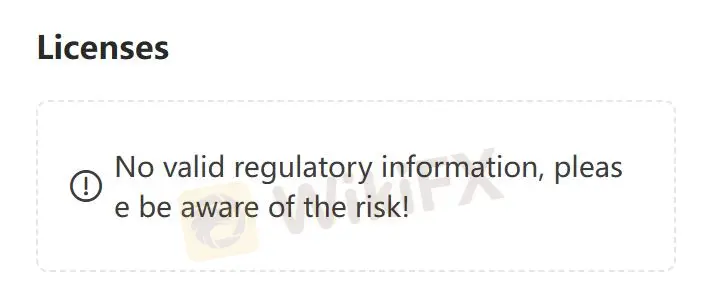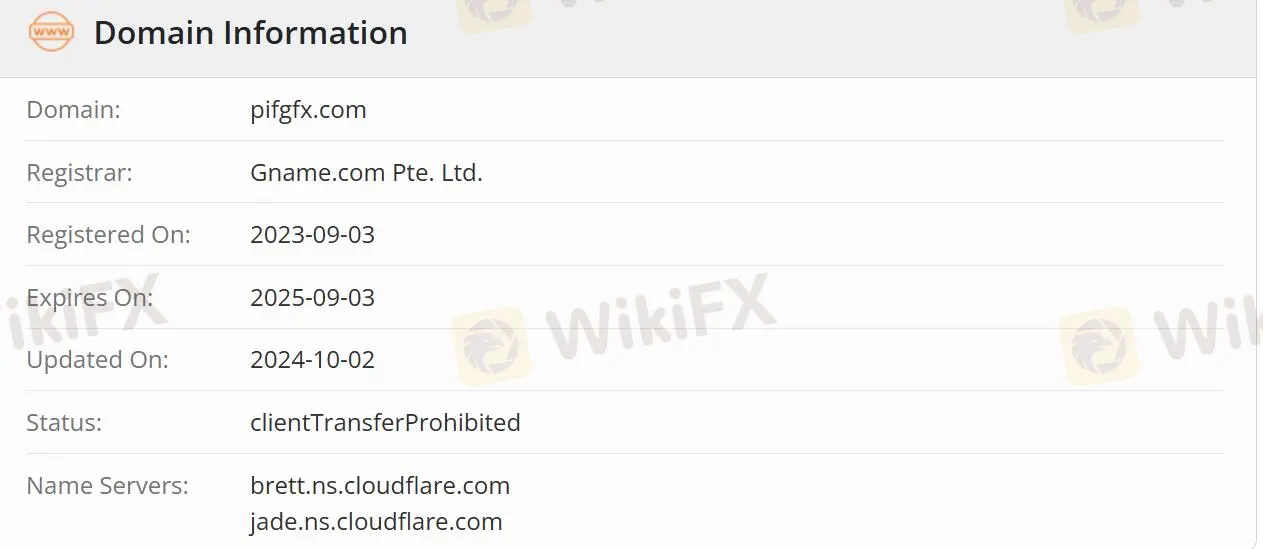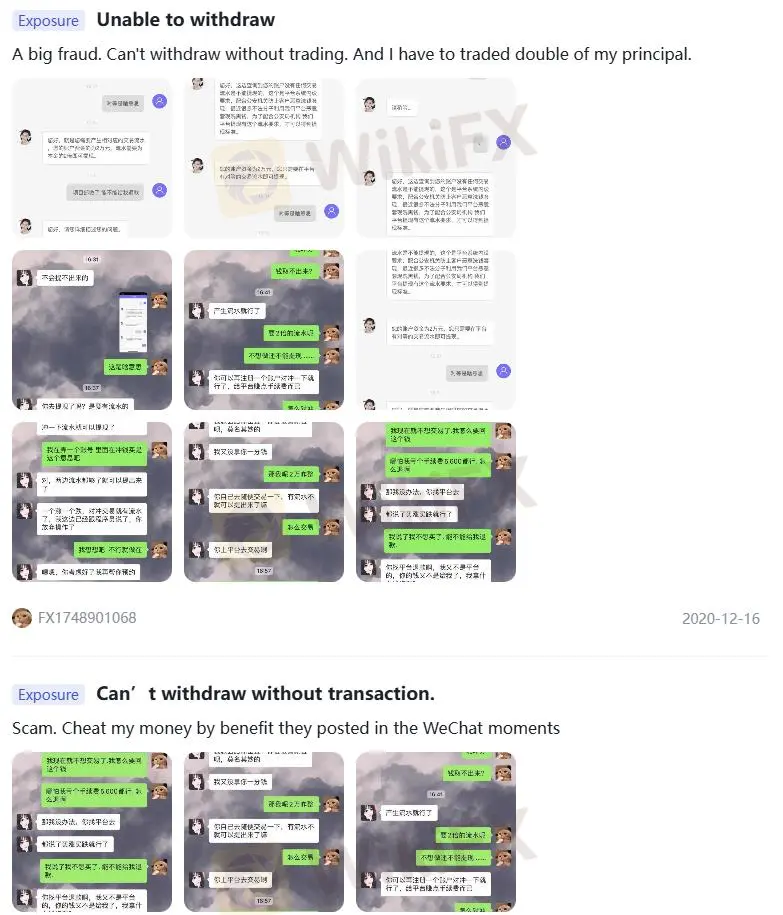PHOENIX
บทคัดย่อ:PHOENIX is an unregulated brokerage company registered in the United Kingdom. While the broker's official website has been closed, so traders cannot obtain more security information.
Note: PHOENIX's official website: https://www.pifgfx.com/ is currently inaccessible normally.
PHOENIX Information
PHOENIX is an unregulated brokerage company registered in the United Kingdom. While the broker's official website has been closed, so traders cannot obtain more security information.
Is PHOENIX Legit?
PHOENIX is not regulated, which will increase trading non-compliance and reduce traders investment security. Caution is advised when dealing with PHOENIX.


Downsides of PHOENIX
- Unavailable Website
PHOENIX's website is currently inaccessible, raising concerns about its reliability and accessibility.
- Lack of Transparency
Since PHOENIX does not explain more transaction information, especially regarding fees and services, this will bring huge risks and reduce transaction security.
- Regulatory Concerns
PHOENIX is not regulated, which is less safe than a regulated one.
- Withdrawal Difficulty
According to a report on WikiFX, users encountered significant difficulties with fund withdrawals. The issue remained unresolved despite the request being pending for a long time.
Negative PHOENIX Reviews on WikiFX
On WikiFX, “Exposure” is posted as a word of mouth received from users.
Traders must review the information and assess risks before trading on unregulated platforms. Please consult our platform for related details. Report fraudulent brokers in our Exposure section and our team will work to resolve any issues you encounter.

Currently, there are 2 pieces of PHOENIX exposure in total on the same day.
Exposure. Cannot withdraw
| Classification | Unable to Withdraw |
| Date | 20120-12-16 |
| Post Country | Hong Kong, China |
You may visit: https://www.wikifx.com/en/comments/detail/202012164352267295.html https://www.wikifx.com/en/comments/detail/202012163262217875.html.
Conclusion
PHOENIX Since the official website cannot be opened, traders cannot get more information about security services. In addition, the unregulated status indicates that this brokers trading risks are high. It is advisable to choose regulated brokers with transparent operationsto ensure the safety of your investments and compliance with legal standards. Traders can learn more about other brokers through WikiFX. Information improves transaction security.
Wiki โบรกเกอร์
FXTM
Exness
DBG Markets
FXCM
GTCFX
MultiBank Group
FXTM
Exness
DBG Markets
FXCM
GTCFX
MultiBank Group
Wiki โบรกเกอร์
FXTM
Exness
DBG Markets
FXCM
GTCFX
MultiBank Group
FXTM
Exness
DBG Markets
FXCM
GTCFX
MultiBank Group
ข่าวล่าสุด
ดอลลาร์แข็งค่า นักลงทุนจับตาดัชนี CPI สหรัฐฯ
เป็นเทรดเดอร์เงินล้าน ตั้งแต่อายุน้อย เพราะทำ 6 นิสัยนี้
ประกาศเปิดตัวแอป WikiFX เวอร์ชัน 3.6.4
ชาวเน็ตแชร์! ประสบการณ์สูญเงิน 4 แสนเทรดแบบพนัน อัดเงินหวังถอนสุดท้ายหมดตัว
ทรัมป์ปัดตอบประเด็นภาวะถดถอยทางเศรษฐกิจจากนโยบายภาษีปัจจุบัน
เหตุการณ์สำคัญทางเศรษฐกิจที่น่าสนใจสัปดาห์นี้
WikiFX รีวิวโบรกเกอร์ | BOQ โพสต์นี้มีคำตอบ !
กระทรวงศึกษาธิการสหรัฐฯ จ่อปลดพนักงานครึ่งหนึ่ง ทรัมป์เล็งยุบกระทรวงฯ
ชาวเน็ตแชร์! 3 เหตุการณ์ที่อาจทำให้ได้มุมมองใหม่ๆ ในการเลือกโบรกเกอร์
นักวิเคราะห์เตือน! ราคา Bitcoin หลุดแนวรับสำคัญแล้ว เป้าราคาต่อไปอาจอยู่ที่ $69,000
คำนวณอัตราแลกเปลี่ยน

